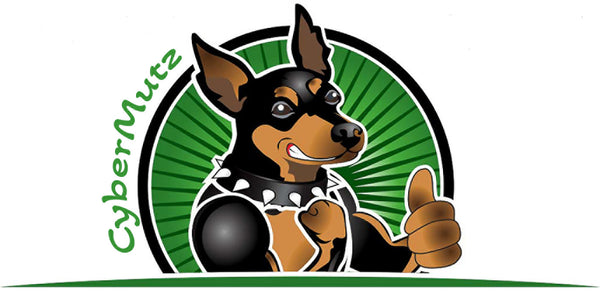
🦴 How to Spot Nutrient Deficiencies in Dogs
Share
🦴 How to Spot Nutrient Deficiencies in Dogs
Meta Description: Learn how to recognize the signs of nutrient deficiencies in your dog and what to do to help them stay healthy and balanced.
Why Nutrient Balance Matters
Dogs, just like humans, need a wide range of vitamins, minerals, and macronutrients to stay healthy. If your dog isn’t getting the right nutrients—or not absorbing them properly—it can lead to subtle (and not-so-subtle) signs that something’s off. Knowing what to look for can help you correct the issue early.
⚠️ Common Signs of Nutrient Deficiency in Dogs
1.
Dry, Itchy Skin or Dull Coat
A lack of omega-3 fatty acids, zinc, or vitamin A often shows up as flaky skin, excessive shedding, or a coat that’s lost its shine.
2.
Low Energy or Lethargy
If your dog seems tired more often than usual, it could be due to deficiencies in iron, vitamin B12, or protein—all essential for energy production.
3.
Frequent Digestive Issues
Chronic diarrhea, constipation, or gas might signal a lack of fiber, digestive enzymes, or probiotics. It could also indicate poor nutrient absorption.
4.
Slow Wound Healing
Wounds or sores that don’t heal properly may point to a deficiency in vitamin C, zinc, or protein, which all support tissue repair.
5.
Behavioral Changes
Irritability, anxiety, or confusion in older dogs could be tied to B-vitamin deficiencies or amino acid imbalances that impact brain function.
6.
Weak Muscles or Joint Pain
Insufficient calcium, vitamin D, or magnesium can cause muscle tremors, stiffness, or mobility issues.
7.
Poor Growth in Puppies
Puppies who aren’t thriving may be missing key nutrients like calcium, phosphorus, or protein, all essential for bone development and growth.
🐶 Common Deficiencies to Watch For
-
Vitamin A – Vision problems, skin issues
-
Vitamin D – Bone weakness, poor muscle health
-
Vitamin E – Neurological issues, reproductive problems
-
Vitamin B12 – Fatigue, appetite loss, GI issues
-
Iron – Pale gums, weakness
-
Zinc – Skin lesions, hair loss
-
Omega-3s – Dull coat, inflammation
-
Calcium/Phosphorus – Bone deformities, dental problems
🦴 What Causes Deficiencies?
-
Poor-quality or unbalanced diet
-
Feeding only one type of protein or food for extended periods
-
Medical conditions like IBD or malabsorption
-
Homemade diets without proper supplementation
-
Overcooking fresh food, which can destroy nutrients
🛠️ How to Fix It
-
Upgrade the Diet: Choose a complete and balanced dog food from a reputable brand or consult a veterinary nutritionist for homemade recipes.
-
Add Supplements: But only under guidance—too much of a nutrient can be just as harmful as too little.
-
Rotate Proteins and Food Types: Rotational feeding introduces a variety of nutrients over time.
-
Work With Your Vet: Blood tests can pinpoint specific deficiencies and guide treatment.
Final Woof
Your dog may not be able to tell you something’s wrong, but their body will show it. Keep an eye out for changes in skin, coat, energy, and digestion. A well-balanced diet is the cornerstone of a healthy, happy pup—don’t underestimate its power.
Need a nutritional boost for your dog’s meals?
Explore our handpicked supplements and toppers at CyberMutz to support overall wellness from the inside out.
